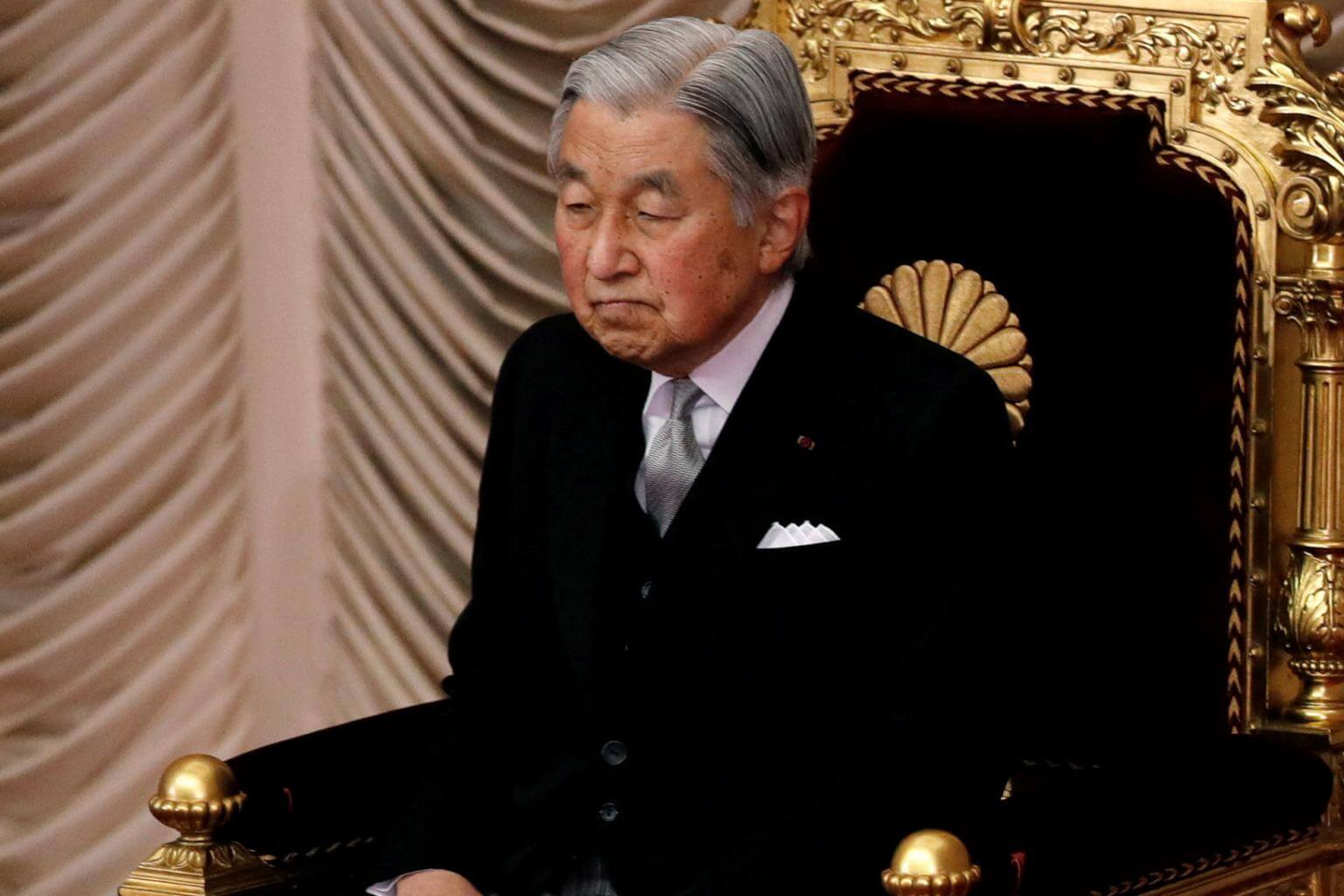Japanese Emperor Akihito being treated for brain condition
Sign up now: Get insights on Asia's fast-moving developments

Japan's Emperor Akihito at a session of Parliament in Tokyo on Jan 22, 2018. He has cancelled his public duties after suffering dizziness and nausea due to cerebral anaemia.
PHOTO: REUTERS
Follow topic:
TOKYO (AFP) - Japan's 84-year-old Emperor Akihito cancelled his official duties on Monday (July 2) after being taken ill as a result of insufficient blood flow to his brain, the country's top government spokesman said.
Emperor Akihito shocked the country in 2016 when he signalled his desire to step down after nearly three decades in the job, citing his age and health problems.
Early on Monday, the emperor "had a sudden feeling of sickness and heavy sweating" and Empress Michiko "immediately brought in the palace doctor", Mr Yoshihide Suga told reporters.
The doctor diagnosed the emperor with "symptoms of vertigo and nausea due to cerebral anaemia, which require a complete rest and follow-up checks", said Mr Suga, the chief Cabinet secretary, speaking at a regular press conference.
Cerebral anaemia is a condition resulting from insufficient blood flow to the brain.
Emperor Akihito had been due to meet on Monday with Princess Ayako, a daughter of one of his cousins, to hear about her engagement, a spokesman for the Imperial Household Agency told AFP.
"We don't have further details" about the emperor's health condition, he added.
The emperor also postponed his planned meeting with the Qatari ambassador, who is scheduled to leave Japan soon, local media reported.
It was not clear when Emperor Akihito would resume his public duties.
He will be the first emperor to retire - on April 30, 2019 - in more than two centuries in the world's oldest imperial family.
Emperor Akihito's eldest son, 58-year-old Crown Prince Naruhito, is set to ascend the Chrysanthemum Throne a day later.
The status of the emperor is sensitive in Japan - a legacy of the massive Pacific war waged in the name of Emperor Akihito's father, Hirohito, who died in 1989.
Emperor Akihito has keenly embraced the more modern role as a symbol of the state which was imposed on the royal family after World War II ended.
Previous emperors, including Hirohito, had been treated as semi-divine.

